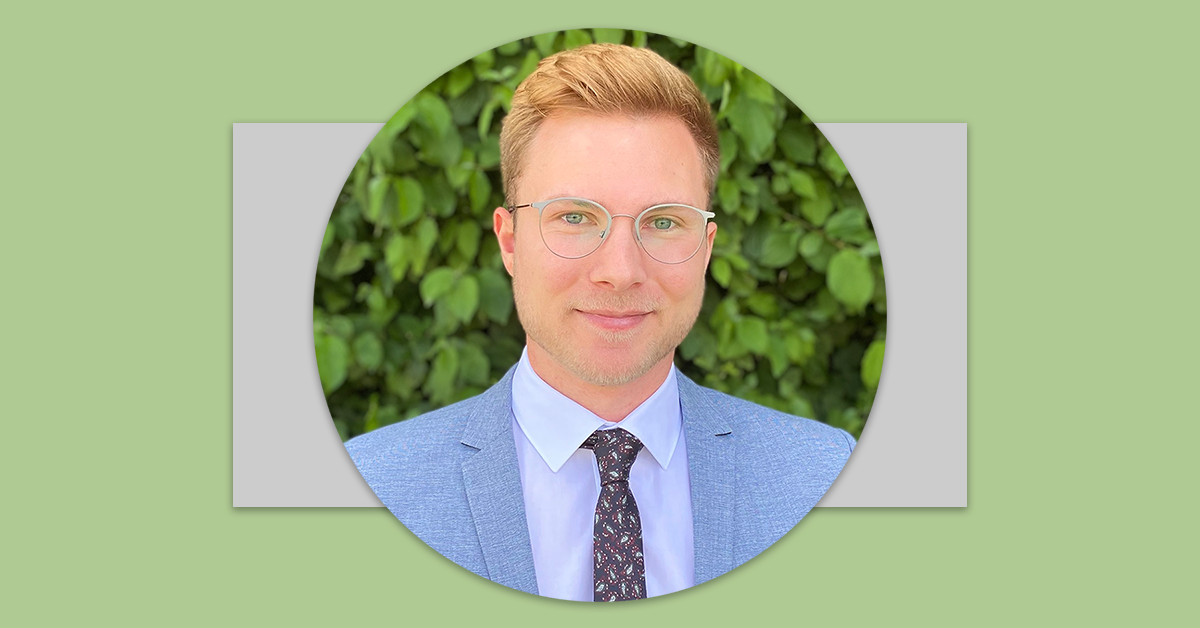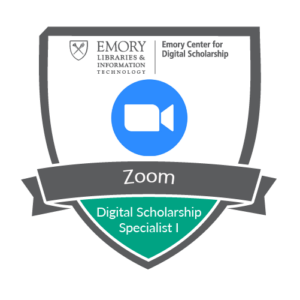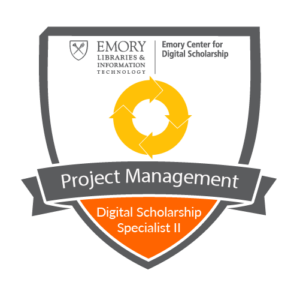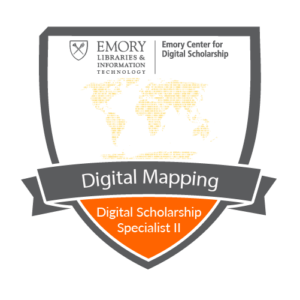This reflection post is part of a series on current and former members of the Emory Center for Digital Scholarship (ECDS) staff. Alexander Cors is the new Graduate Student Coordinator Fellow for the Digital Scholarship Internship Program (DSIP).
by Alexander Cors
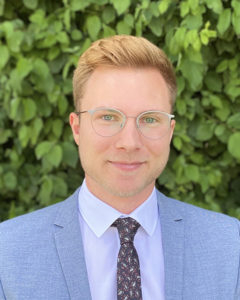 In addition to being a fifth-year PhD candidate in the Emory University Department of History, I have been with the Emory Center for Digital Scholarship (ECDS) for four years now. In July I took over as Graduate Student Coordinator Fellow for the Digital Scholarship Internship Program (DSIP), a program through which I myself was able to participate and contribute to ECDS’s many wonderful projects. I am thrilled to continue contributing to the team in this new role.
In addition to being a fifth-year PhD candidate in the Emory University Department of History, I have been with the Emory Center for Digital Scholarship (ECDS) for four years now. In July I took over as Graduate Student Coordinator Fellow for the Digital Scholarship Internship Program (DSIP), a program through which I myself was able to participate and contribute to ECDS’s many wonderful projects. I am thrilled to continue contributing to the team in this new role.
The DSIP presents a great and unique opportunity for graduate students from different departments across the Laney Graduate School to learn digital scholarship skills, tools, and methods. With its focus on pedagogy, research, and training, the DSIP lets students contribute and hone their own skills and develop their own interests.
I have experienced firsthand the great benefits of the program since I started at the ECDS in my first year in the PhD program. I learned a wide variety of digital tools that proved useful in assisting faculty and students with their projects, from creating podcasts and websites to incorporating digital storytelling assignments in the classroom.
I was always interested in mapping and mapmaking and its connection to history. Building on my B.A. in History and Geography from the University of Augsburg, I took a class on cartography and GIS in my second year at Emory. This allowed me to use mapping as a research tool for my dissertation and to also work on mapping projects at the ECDS.
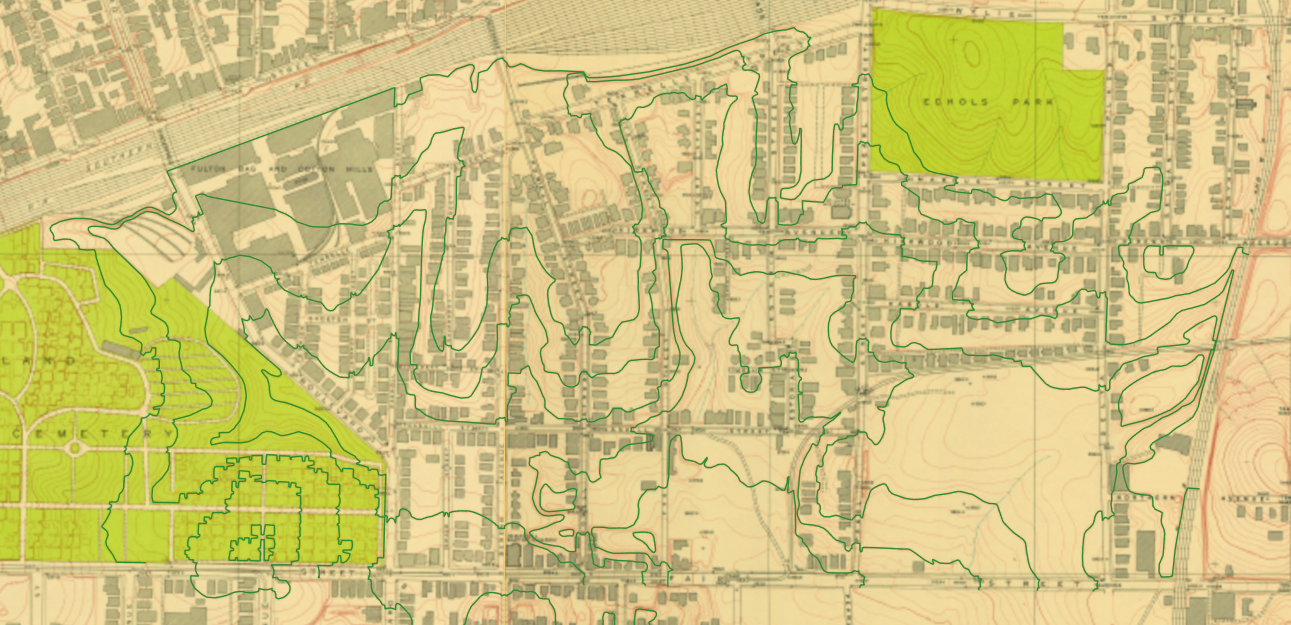
As a Digital Scholarship Associate between 2018-2020, I split my time between desk shifts on the main ECDS floor—assisting students and faculty—and the Digital Visualization Lab, where I worked on different mapping and cartography projects like Pauliceia 2.0, the Georgia Coast Atlas, and the OpenWorld Atlanta project. I really enjoyed “having a foot” in both parts of the ECDS, and working with students and staff in both areas. One of the things I enjoyed most was working in interdisciplinary teams. For the OpenWorld Atlanta project, we brought together geographers, computer scientists, and visualization specialists. As the historian in the group, I was responsible for archival research on 1920s Atlanta, and to collect material for neighborhoods, buildings, and inhabitants.
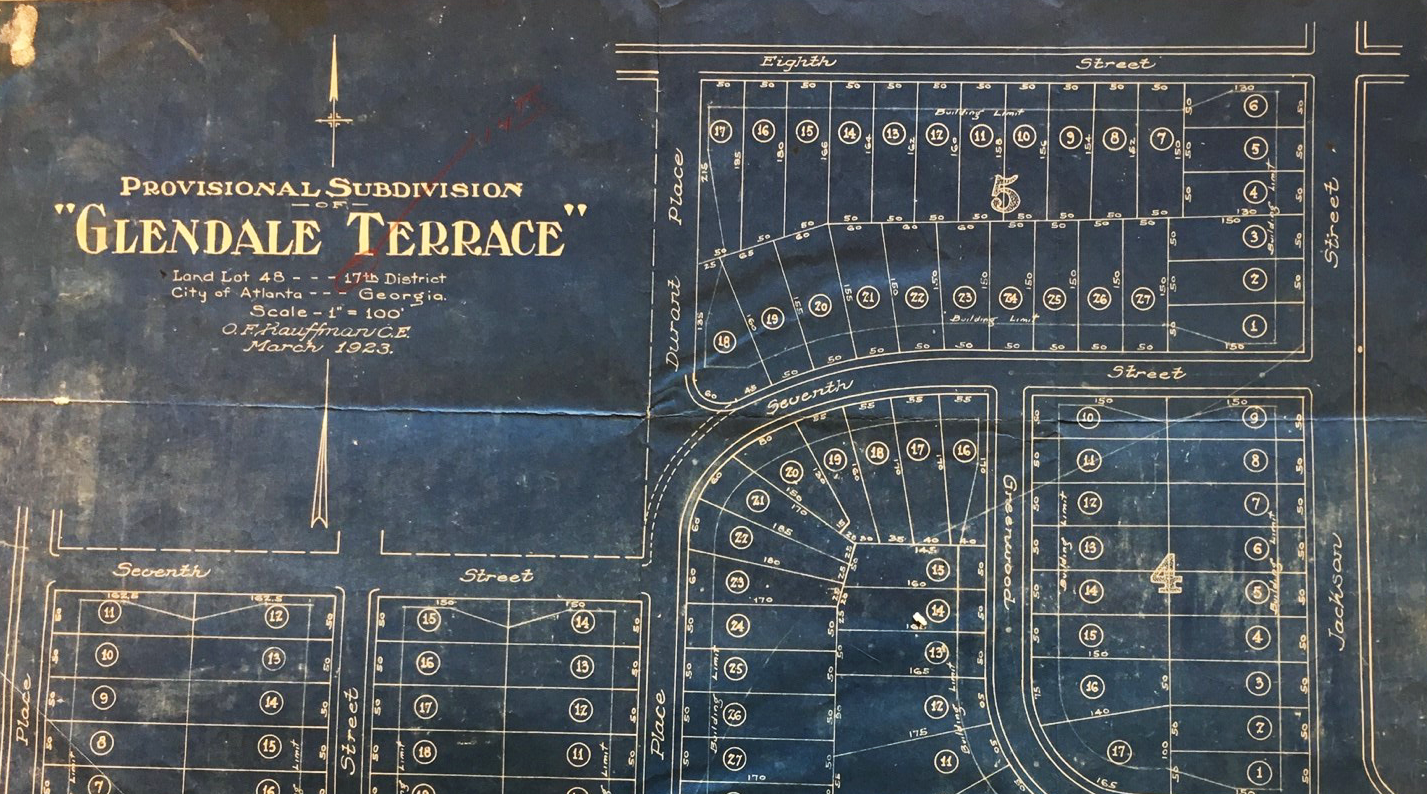
I am excited to continue contributing to the success of the ECDS’s graduate program in this new role. As the Graduate Student Coordinator Fellow, I will serve as primary contact for the coordination of ECDS graduate students’ activities, including professional development, project work, and training.
Although we cannot meet in-person in the upcoming semester, one of my priorities is to make sure everyone can continue their training and professional development. I am looking forward to developing new training modules for our internal micro-credentialing program. Currently, Elizabeth Lummus and I are preparing a six-week Project Management course for graduate students and a corresponding badge for the ECDS internship program. I also envision a series of small workshops for the next semester about topics like searching and applying for alt-ac jobs, turning a CV into a resume, developing a professional online presence.
Like many others, I will be working remotely next semester. I am currently conducting archival research for my dissertation in Madrid, Spain. One of the unexpected benefits of living in a time zone six hours ahead of Atlanta is that I—normally on a night-owl schedule—can now field questions and emails in the morning with great cheer. As we move into the next semester, please do not hesitate to reach out with any questions about the DSIP or other ECDS-related work!
